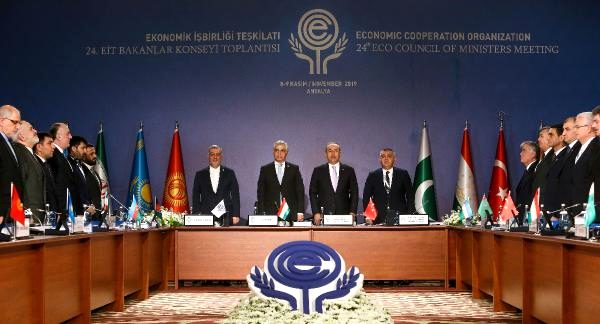In a statement and an interview delivered recently, President Sarkisian has given great room for Armenia’s relations with Turkey and contrary to its predecessors, has brought the genocide allegations to the forefront. Sarkisian’s views on this issue could be summarized as follows: According to the Armenian President, Turkey must recognize and condemn the Armenian genocide (allegations). This is not only a duty towards the victims of the genocide and their descendants, but also a duty before the entire human kind and before the Turkish people. The recognition and condemnation is not just a matter of justice and retribution, but it also has a security dimension for Armenia. Turkey is a rapidly developing country which is making impressive progress; however that progression will be deficient and may be dramatically stalled if the Turkish authorities do not seriously review their attitude towards the history of their state. On the other hand, having no desire to face up to history and at the same time showing European ambitions cannot be combined easily. The most progressive and courageous segment of the Turkish society is speaking out loud about the Armenian genocide. Despite Turkey’s stance on the issue of genocide, Armenia has initiated the process of normalization with Turkey through the Protocols, but this process has ended as Turkey withdrew from the assumed obligations. Turkey-Azerbaijan has put a blockade on Armenia and forces Armenia to make unilateral concessions by refusing to cooperate with it, but have failed in doing so. Turkey’s fraternity with Azerbaijan is an obstacle for them. These statements of the Armenian President are entirely opposite to Turkey’s stance on the genocide allegations, the Karabakh issue and its policy towards Azerbaijan. Especially, as mentioned above, opposite to his successors, Sarkisian has made the recognition of the genocide allegations the center of his policy which he pursues and will pursue towards Turkey. It could also be understood that he wants to utilize Turkey’s EU membership process and those supporting the genocide allegations in Turkey in order to implement this policy. On the other hand, while appreciating the progress Turkey has made particularly in the economic area, at the same time making a rather bizarre assertion that these could be stalled if Turkey does not recognize the genocide allegations show that he has made the issue of genocide rather an obsession. In response to a question of the journalist conducting the interview that the Turkish media has compared Armenia’s big plans for 2015 to a tsunami and therefore the Turks are in for hard times, President Sarkisian has said that he does not think it is appropriate to compare the genocide to a tsunami, that 2015 is not a watershed where a race ends and victory is gained, naturally organizations of Armenia and the Diaspora will become more active in connection with this anniversary, however that their goal is not to make a storm in the world but for the Turks to admit the Armenian genocide. It could be seen that through these statements, Sarkisian is attempting to prevent Armenia and rather more the Diaspora Armenians, who are anticipating 2015 with great eagerness, from being disappointed. However, beyond this point, it is also important for showing that their struggle against Turkey for the recognition of the genocide allegations will also continue after 2015. In conclusion, it is possible to say that the importance Sarkisian attaches to Turkey’s recognition of the genocide allegations is a negative element and if Armenia insists on such recognition, it will form a serious obstacle in the short and medium term to the normalization of Turkey-Armenia relations.
© 2009-2025 Center for Eurasian Studies (AVİM) All Rights Reserved
TURKEY AND THE RUSSIAN BASE IN GYUMRI
 ONGOING TENSIONS IN THE SOUTH CAUCASUS
ONGOING TENSIONS IN THE SOUTH CAUCASUS
 FROM TERRORISM TO INVASION AND MASSACRE: GILBERT LEVON MINASSIAN
FROM TERRORISM TO INVASION AND MASSACRE: GILBERT LEVON MINASSIAN
 THE ECO AND THE CHAIRMANSHIP OF TURKEY
THE ECO AND THE CHAIRMANSHIP OF TURKEY




























